Dr Orlando Owoh
Owoh's career started in 1960 with him playing the bongos with The Fakunle Major Band. After three years, fighting in Nigeria civil war on the side of the Nigerians, Owoh returned to form his own band, on Decca label to critical acclaim. He sang mostly in Yoruba and occasionally in English.
His music which is enjoyed by the older generation is known as 'Toye' and involves de emphasizing Caribbean - style horn arrangement of the highlife in favor of Owoh's guttural voice, guitar, percussion and lyrics. Since his emergence into the music industry, Owoh and his band racked up over 40 LPs including 'Ero Ki Yeye Mi', 'Omiye Lala', 'Osupa Roro','Iyawo Olele', 'Omo Ni Ye', 'Mo Baju Wo Oju' and 'Orun/Irawo Mi Ko Ni Ku' and gained international recognition.
He has led groups such as the Omimah Band, the Young Kenneries which was later changed to His African Kenneries International. The word 'Kenneries' is a reference to his voice which he was told sounded like that of a Canary bird.
In 1972, he played at a graduation ceremony for Nigerian law students in London, England, and at the African center on October 1,1972 where he was honoured with the doctorate degree in music and From then on known as Dr. Orlando Owoh. He toured the United Kingdom and appeared in the Netherlands, Belgium, and Italy. Performing in the United States in the 1980s and 1990s.
In the 1980s, Owoh's music grew radical, composing lyrics such as 'Innocent Plenty oo for Alagbon', 'Dem go molest you taya', and 'Long long protocol' drawing the attention of the Nigerian government by singing about how he economy had deteriorated in 'Aso Otito Aiye', 'E get as e be', 'It is not Easy', 'Eku Iroju'. 'Omo Nigeria' and 'Not in Our Character (Iwa Wa Ko)'.
When other highlife artistes started infusing western production electronics into their West African band, Owoh stuck to his low tech approach, remaining true to his small guitar-band format and this can be noticed if his sound is played alongside those of his contemporaries.
Between 1990 and 2005, Owoh released over a dozen records, slapping Decca records with a law suit seeking back royalties for his recordings under the label.
His music which is enjoyed by the older generation is known as 'Toye' and involves de emphasizing Caribbean - style horn arrangement of the highlife in favor of Owoh's guttural voice, guitar, percussion and lyrics. Since his emergence into the music industry, Owoh and his band racked up over 40 LPs including 'Ero Ki Yeye Mi', 'Omiye Lala', 'Osupa Roro','Iyawo Olele', 'Omo Ni Ye', 'Mo Baju Wo Oju' and 'Orun/Irawo Mi Ko Ni Ku' and gained international recognition.
He has led groups such as the Omimah Band, the Young Kenneries which was later changed to His African Kenneries International. The word 'Kenneries' is a reference to his voice which he was told sounded like that of a Canary bird.
In 1972, he played at a graduation ceremony for Nigerian law students in London, England, and at the African center on October 1,1972 where he was honoured with the doctorate degree in music and From then on known as Dr. Orlando Owoh. He toured the United Kingdom and appeared in the Netherlands, Belgium, and Italy. Performing in the United States in the 1980s and 1990s.
In the 1980s, Owoh's music grew radical, composing lyrics such as 'Innocent Plenty oo for Alagbon', 'Dem go molest you taya', and 'Long long protocol' drawing the attention of the Nigerian government by singing about how he economy had deteriorated in 'Aso Otito Aiye', 'E get as e be', 'It is not Easy', 'Eku Iroju'. 'Omo Nigeria' and 'Not in Our Character (Iwa Wa Ko)'.
When other highlife artistes started infusing western production electronics into their West African band, Owoh stuck to his low tech approach, remaining true to his small guitar-band format and this can be noticed if his sound is played alongside those of his contemporaries.
Between 1990 and 2005, Owoh released over a dozen records, slapping Decca records with a law suit seeking back royalties for his recordings under the label.
Category : Music & Audio

Related searches
Reviews (3)
Afo. A.
Jun 22, 2020
Very good and great job
Gre. P.
Feb 11, 2022
While I was alone and remembered my sweetie mother I sing Orlando owoh music, ERO KI MAMA MI YEOO, MA TETE WALE......
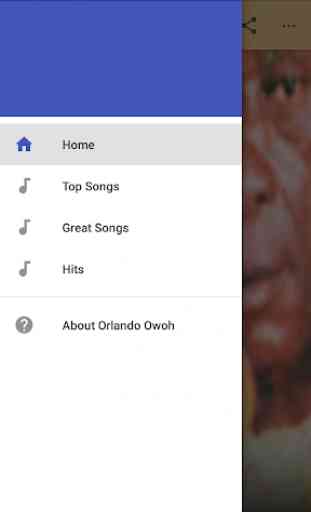
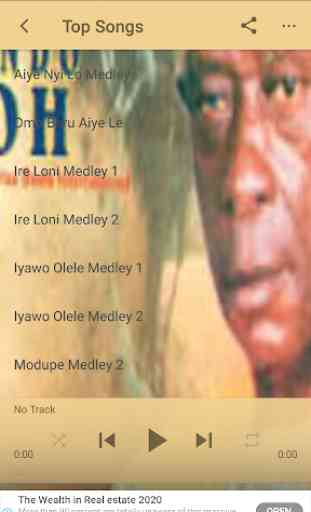
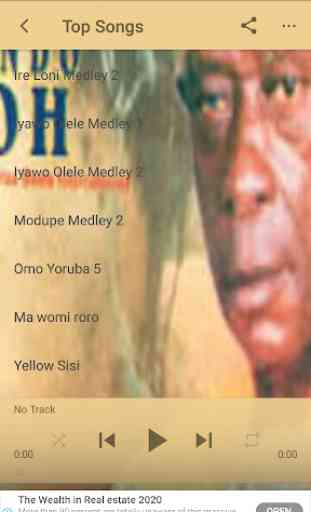
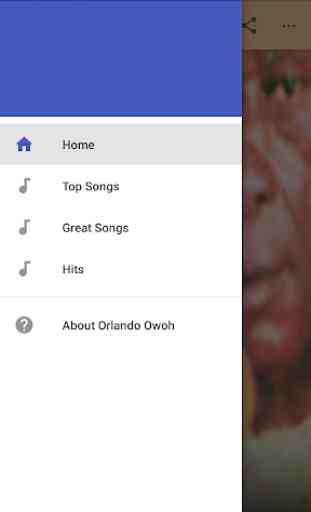
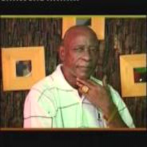
When u listen to the music u always happy u just dance away ur sorrow